The Well-Tempered Ear
Today is World Piano Day. Deutsche Grammophon has a free online celebration
6 Comments
PLEASE HELP THE EAR. IF YOU LIKE A CERTAIN BLOG POST, SPREAD THE WORD. FORWARD A LINK TO IT OR, SHARE IT or TAG IT (not just “Like” it) ON FACEBOOK. Performers can use the extra exposure to draw potential audience members to an event. And you might even attract new readers and subscribers to the blog.
By Jacob Stockinger
Today — Wednesday March 29, 2023 — is World Piano Day.
That is because today is the 88th day of the year — and most pianos these days have 88 keys, with the exception of the Austrian high-end maker Bösendorfer, which also makes models with 91 and 97 keys.
Deutsche Grammophon is the world’s oldest recording label and has signed many great pianists in the past and continues to do so today, including two of the Ear’s young favorites: South Korean pianist and 2015 Chopin Competition gold medalist Seong-Jin Cho (below top) and Icelandic pianist Vikingur Olaffsson (below bottom).
Here’s the press release:
“Deutsche Grammophon is set to mark World Piano Day on 29 March 2023 with its fourth international festival of pianism.
“Available to enjoy without charge on DG’s streaming service STAGE+ and the label’s YouTube channel, the festival will turn the spotlight on artists including Joep Beving, Seong-Jin Cho, Brian Eno and Roger Eno, Jan Lisiecki, Hélène Grimaud, Lucas and Arthur Jussen, Evgeny Kissin, Lang Lang, Bruce Liu, Fabian Müller, Víkingur Ólafsson, Max Richter, Grigory Sokolov and Daniil Trifonov.
“Together they will offer a feast of music ranging from the keyboard works of J.S. Bach and Handel to contemporary compositions.
“Music-lovers will be able to tune in free of charge for 30 days by using promo code WORLDPIANODAY. Full details can be found at https://worldpianoday.com.”
Piano students and fans will love the many close-ups and hand shots.
You can also sample the 1 hour, 21 minute-digital celebration on YouTube via this link (be sure to click of HEAR MORE to see the pianist, the piece and the timing) https://www.youtube.com/watch?v=1H5ZRqfDZ7Y.
You can hear one of The Ear’s favorite young pianists, pieces and recordings — a new release — at the bottom.
Who is your favorite established pianist?
Who is your favorite young pianist?
What are your favorite piano pieces?
Do you have a favorite piano recording, old or new, to recommend?
The Ear wants to hear.
Tags: #BösendorferPiano, #BlogPost, #BlogPosting, #BruceLiu, #BuckyBadger, #ChopinInternationalPianoCompetition, #DaniilTrifonov, #FacebookPost, #GeorgeFridericHandel, #KoreanMusician, #LangLang, #Seong-JinCho, #TheEar, #VikingurOlaffsson, #WilhelmKempff, #YouTubeChannel, #YouTubevideo, 88, Arts, Asia, asian, audience, Austria, Austrian, Bach, Baroque, Beethoven, blog, Bosendorfer, Brian Eno, Bruce Liu, Canada, Canadian, celebration, Chamber music, China, Chinese, Chopin, Chopin International Piano Competition, Classical music, composer, Concert, concerto, contemporary, contemporary composers, Daniil Trifonov, Deutsche Grammophon, DGG, digital, Early music, Evgeny Kissin, Facebook, favorite, Gold medal, Grigory Sokolov, Grimaud, Handel, hear, Helene Grimaud, Jacob Stockinger, Jan Lisiecki, Japan, Japanese, Johann Sebastian Bach, Kempff, key, Korea, Lang Lang, link, Ludwig van Beethoven, Madison, march, Max Richter, month, Mozart, Music, online, Orchestra, Piano, piece, recital, recommend, recording, Seong-Jin Cho, share, solo, Sonata, South Korea, South Korean, The Ear, United States, University of Wisconsin-Madison School of Music, University of Wisconsin–Madison, video, Vikingur Olaffsson, Wilhelm Kempff, winner, Wisconsin, Wolfgang Amadeus Mozart, World Piano Day, year, young, YouTube
Classical music: Today is the Summer Solstice. What music best greets summer during this odd year? Plus, here is information about Make Music Madison this Sunday
1 Comment
PLEASE HELP THE EAR. IF YOU LIKE A CERTAIN BLOG POST, SPREAD THE WORD. FORWARD A LINK TO IT OR, SHARE IT or TAG IT (not just “Like” it) ON FACEBOOK. Performers can use the extra exposure to draw potential audience members to an event. And you might even attract new readers and subscribers to the blog.
By Jacob Stockinger
Today – Saturday, June 20, 2020 – is the Summer Solstice.
Summer officially arrives this afternoon at 4:43 p.m. CDT.
Is The Ear alone in thinking that the time since the winter solstice has passed both more slowly and also more quickly than usual, thanks to the pandemic?
And now the days will start getting shorter. Can that be possible? Is the year really half over?
Well, it has been an unusual spring and promises to be an unusual summer, to say the least.
So how about some unusual Vivaldi?
If you listen to Wisconsin Public Radio, chances are good that today or sometime soon you will hear the hyper-popular original version of “Summer” from Vivaldi’s “The Four Seasons.”
But The Ear finds this unusual contemporary version a welcome change from the over-programmed and too familiar original version, and more appropriate to the special summer that will follow the special spring.
It is a version that has been “recomposed” by British composer Max Richter (below top) with violin soloist Daniel Hope (below bottom), a protege of the legendary Yehudi Menuhin, who performed several years ago with the Madison Symphony Orchestra.
The Ear finds the entire work very appealing, but here is the YouTube video of just the Summer section as it was being recorded.
If you don’t like this music, what music would you choose to listen to as you celebrate the coming of summer?
And if you like this excerpt, here is a link to the complete version of “Vivaldi Recomposed”:
https://www.youtube.com/watch?v=dJnxPgT83rw
MAKE MUSIC MADISON
Today may be the Summer Solstice, but this year’s Make Music Madison will take place this Sunday, which also happens to be Father’s Day.
The eight annual Make Music Madison – which includes classical music but also rock, jazz, folk, blues, hip-hop and country — is part of Make Music Day, an international celebration of the Summer Solstice that this year will take place in some 1,000 cities in 120 countries.
Here is a helpful listing with locations, time, performers and programs as well as form (virtual and online, with links, or real): http://www.makemusicmadison.org
Here is a story with more background about the event: http://www.makemusicday.org
If you attend or hear some of the events, let us know what you thought.
The Ear wants to hear.
Tags: #AmericanJazz, #AntonioVivaldi, #BaroqueMusic, #BlogPost, #BlogPosting, #BluesMusic, #BritishComposer, #ChamberMusic, #CoronavirusPandemic, #CountryMusic, #COVID-19, #DanielHope, #FacebookPost, #FacebookPosting, #Father'sDay, #FolkMusic, #FourSeasons, #GreatBritain, #Hip-hopmusic, #ItalianBaroque, #italianComposer, #JacobStockinger, #MadisonSymphonyOrchestra, #MakeMusicDay, #MakeMusicMadison, #MaxRichter, #MusicalExcerpt, #OriginalVersion, #RapMusic, #RockandRoll, #SummerSolstice, #TheBlues, #TheEar, #UnitedKingdom, #ViolinConcerto, #VocalMusic, #WinterSolstice, #WisconsinPublicRadio, #YehudiMenuhin, #YouTubevideo, alone, Antonio Vivaldi, appealing, arrive, Arts, attend, audience, background, Baroque, blog, blues, British, celebrate, Chamber music, change, cities, city, Classical music, complete, compose, composer, concerto, contemporary, coronavirus, countries, country, country music, Daniel Hope, day, Early music, England, event, excerpt, Facebook, fathers day, find, folk, form, forward, Four Seasons, Great Britain, greet, half, helpful, hip-hop, information, international, Italian, Jacob Stockinger, Jazz, June, legend, legendary, like, link, listing, location, Madison, Madison Symphony Orchestra, Make Music Day, Make Music Madison, Max Richter, Music, odd, official, online, original, over, pandemic, passed, perform, performer, Piano, popular, possible, post, posting, program, promise, protege, quickly, rap, real, recompose, Richter, Rock, Saturday, Season, share, shorter, slowly, soloist, solstice, Spring, story, summer, Summer solstice, Sunday, tag, thanks, The Ear, The Four Seasons, think, time, today, UK, United States, unusual, version, Violin, Violin concerto, violinist, virtual, Vivaldi, vocal music, welcome, winter solstice, Wisconsin, wisconsin public radio, years, Yehudi Menuhin, YouTube
Classical music: You Must Hear This: Violinist Hilary Hahn plays “Mercy” by Max Richter
4 Comments
By Jacob Stockinger
One of the gems in the 27 encores that violinist Hilary Hahn commissioned from 27 different composers a couple of years ago is “Mercy” by the German-born British composer Max Richter.
Hahn has played here several times, mostly at the Wisconsin Union Theater but also with the Madison Symphony Orchestra.
Although Max Richter’s Minimalist music has not been played in Madison as far as The Ear remembers, you might already know his name from the popular recording of his take on Vivaldi in “The Four Seasons Recomposed” or his more ambitious and most current project “Sleep,” which provides music for eight and a half hours of sleeping.
But The Ear confesses he had not heard this moving miniature called “Mercy” until recently, even though Hahn recorded it along with the other 26 encores with pianist Cory Smithe.
He likes it.
And so apparently do a lot of other listeners.
So it is something that is well worth using five minutes of your time to sample.
Write your comments, positive or negative, below.
The Ear wants to hear.
Tags: #AntonioVivaldi, #CorySmythe, #GreatBritain, #HilaryHahn, #MadisonSymphonyOrchestra, #MaxRichter, #TheFourSeasons, #UnitedKingdom, #ViolinConcerto, #ViolinMusic, #WisconsinUnionTheater, ambitious, Arts, British, Chamber music, Classical music, comment, commission, commissions, composer, Cory Smythe, current, encore, gem, German, Germany, Hilary Hahn, Jacob Stockinger, listener, Madison, Madison Symphony Orchestra, Max Richter, mercy, miniature, minimalism, Music, name, negative, Orchestra, Pianist, Piano, positive, project, recording, sample, Sleep, sleeping, The Four Seasons, UK, United States, University of Wisconsin-Madison School of Music, University of Wisconsin–Madison, YouTube
Classical music: Do you have trouble sleeping? Try listening to composer Max Richter’s new eight-hour lullaby.
Leave a Comment
By Jacob Stockinger
Not many days go by where you don’t see, hear or watch stories about how far too many Americans have insomnia and are sleep-deprived.
In fact it sometimes seems like sleep research and insomnia cures are two of the big payoff fields in contemporary American medicine. The Ear wonders: Is it the same story elsewhere in the world? Why or why not?
Of course, there are drugs that can be used and behavioral changes that can be made.
But maybe some music can help.
Especially the eight-hour lullaby by the London-based German composer Max Richter (below, in a photo by Rhys Frampton for Deutsche Grammophon), who last found fame for his minimalist reworking of “The Four Seasons” in “Vivaldi Recomposed.”
Richter’s mammoth lullaby is called – what else? – “Sleep.” A shorter version will soon be released on CD by Deutsche Grammophon.
You can hear a sample of “Sleep” in a YouTube video at the bottom. Is The Ear the only one who thinks that this sample owes something to the famous Prelude No. 1 in C major of “The Well-Tempered Clavier” by Johann Sebastian Bach — the same prelude that was later reworked into a popular setting of “Ave Maria” by the French composer Charles Gounod?
Here is a link to the story about the work and an interview with the composer that appeared on NPR or National Public Radio:
Tags: Album, Antonio Vivaldi, Arts, Ave Maria, Bach, Baroque, Berlin, Cello, Chamber music, Charles Gounod, choral music, Classical music, Compact Disc, Deutsche Grammophon, France, French music, German music, Germany, insomnia, Johann Sebastian Bach, London, Max Richter, Music, Orchestra, Prelude (music), Sleep, sleep deprivation, The Four Seasons, The Well-Tempered Clavier, Vivaldi, vocal music, Wisconsin, YouTube
Classical music: Listen to American violinist Hilary Hahn revive the old tradition of salon music by playing the 27 short encores she commissioned from today’s important composers.
Leave a Comment
By Jacob Stockinger
A frequent critic and gifted guest reviewer on this web site recently referred to Chicago violinist Rachel Barton Pine as the most exciting violin talent to emerge on the American scene.
Well, Barton Pine is indeed special and very gifted, as she proved earlier this month when she opened the Wisconsin Union Theater season with the magnificent Violin Concerto by Johannes Brahms, performed with the University of Wisconsin-Madison Symphony Orchestra conducted under the baton of UW alumnus and Madison native Kenneth Woods.
Here is a link to that review:
But The Ear has to respectfully disagree.
For my money, or my taste, or my values — whatever you want to call it — the most exciting violin talent on the American scene is Hilary Hahn (below).
Hahn performs the classics and the great masterworks terrifically, with a great sense of architectural shape and beautiful tone, plus exciting but not exaggerated or distorted interpretations.
She also plays modern works and commissions works, including a Pulitzer Prize-winning Violin Concerto by Jennifer Higdon (below) who teaches composition at the same Curtis Institute of Music in Philadelphia where Hahn trained.
And her two recitals with the then relatively unknown pianist Valentina Lisitsa at the Wisconsin Union Theater were among the best performed and most originally programmed recitals that I have ever heard.
Oh, and Hilary Hahn also blogs, by the way.
And she also did her own interviews, posted on YouTube, with the 27 composers — including Max Richter, Lera Auerbach and Avner Dorfman — who composed the encores.
Check out her website: http://hilaryhahn.com
Now the heirloom record label Deutsche Grammophon has released the “The Hilary Hahn Encores in 27 Pieces,” which features 27 recently composed pieces, all commissioned by Hahn for her use as concert encores. It is a welcome throwback, in a way, to salon music and to composers like virtuoso violinist Fritz Kreisler.
I don’t know how they did it – I suspect it was some kind of swap for advertising space – but NPR has terrific classical music blog “Deceptive Cadence” and a feature called “First Listen” that also allows you to hear some music before it is released commercially. (But, as I understand it, you can’t download it or recorded it from the NPR site.)
NPR did the same for Jeremy Denk’s acclaimed new recording for the Nonesuch label of Johann Sebastian Bach’s “Goldberg” Variations.
Anyway, here is a link to the new Hilary Hahn CD of encores. Enjoy the music and listening to it.
And let us know your Top 5 picks of the 27, or even just your Top Pick.
It will be interesting to see if there is a consensus and what ones are liked the most.
The Ear wants to hear.
Tags: Avner Dorfman, Curtis Institute of Music, Deutsche Grammophon, encores, Fritz Kreisler, Hahn, Hilary Hahn, Jacob Stockinger, Jennifer Higdon, Jeremy Denk, Johannes Brahms, Kenneth Woods, Lera Auerbach, Max Richter, Pulitzer Prize, Rachel Barton Pine, salon music, UW-Madison, Valentina Lisitsa, Wisconsin Union Theater, YouTube
Classical music: Today brings the Winter Solstice – a perfect time to listen to Vivaldi’s original “Four Seasons” and Max Richter’s “Recomposed” version of Vivaldi’s popular violin concertos.
5 Comments
By Jacob Stockinger
Today is the winter solstice in the Western Hemisphere.
We turn the corner and the days start getting longer, and the night shorter.
The solstice arrives today — on Friday, Dec. 21. Specifically, it arrives this morning at 5:12 a.m. CST.
Could there be a better time to celebrate the famed “The Four Seasons,” a series of violin concertos, composed in 1725 by Antonio Vivaldi (below), and a work that is reputed to be the most recorded piece of classical music of all time?
Here is the original “Winter” section by Vivaldi, with its virtuosic rush of notes, slashing chords and chilly tremolos.
But the winter solstice is also a good time to take a listen to Max Richter’s reworking of Vivaldi’s famous, if overplayed, masterpiece.
It is called “Recomposed by Max Richter: Vivaldi’s Four Seasons” and is available on the Deutsche Grammophon label (below). And it would also be a make for a good holiday gift, especially if someone already has and likes the original “Four Seasons.” It isn’t often after all, that you can have Baroque music and contemporary music in the same work.
Recently, NPR’s exceptional blog “Deceptive Cadence’ featured a fine review of the album, in which the well-known former Beaux Arts Trio violinist Daniel Hope stars, and an interview with the young German-born British composer Max Richter (below).
I find it a quintessentially postmodern project, but one which I find quite effective – and which I think Vivaldi himself might like and approve of. After all, most of the great Baroque composers — including J.S. Bach and G.F. Handel — transcribed their own works and freely borrowed from and elaborated on or altered the works of their colleagues.
Here is a link to the NPR story and interview:
And here are links to some other reviews:
Blogcritics.org:
http://blogcritics.org/music/article/music-review-max-richter-recomposed-by/
http://www.guardian.co.uk/music/2012/oct/21/max-richter-vivaldi-four-seasons
See what you think and let me know.
The Ear wants to hear.
Tags: Antonio Vivaldi, Baroque, Beaux Arts Trio, Daniel Hope, Deutsche Grammophon, Four Seasons, Max Richter, NPR, Vivaldi, Western Hemisphere
- May 2024
- April 2024
- March 2024
- February 2024
- January 2024
- December 2023
- November 2023
- October 2023
- September 2023
- August 2023
- July 2023
- June 2023
- May 2023
- April 2023
- March 2023
- February 2023
- January 2023
- December 2022
- October 2022
- September 2022
- June 2022
- May 2022
- April 2022
- March 2022
- July 2021
- June 2021
- May 2021
- April 2021
- March 2021
- February 2021
- January 2021
- December 2020
- November 2020
- October 2020
- September 2020
- August 2020
- July 2020
- June 2020
- May 2020
- April 2020
- March 2020
- February 2020
- January 2020
- December 2019
- November 2019
- October 2019
- September 2019
- August 2019
- July 2019
- June 2019
- May 2019
- April 2019
- March 2019
- February 2019
- January 2019
- December 2018
- November 2018
- October 2018
- September 2018
- August 2018
- July 2018
- June 2018
- May 2018
- April 2018
- March 2018
- February 2018
- January 2018
- December 2017
- November 2017
- October 2017
- September 2017
- August 2017
- July 2017
- June 2017
- May 2017
- April 2017
- March 2017
- February 2017
- January 2017
- December 2016
- November 2016
- October 2016
- September 2016
- August 2016
- July 2016
- June 2016
- May 2016
- April 2016
- March 2016
- February 2016
- January 2016
- December 2015
- November 2015
- October 2015
- September 2015
- August 2015
- July 2015
- June 2015
- May 2015
- April 2015
- March 2015
- February 2015
- January 2015
- December 2014
- November 2014
- October 2014
- September 2014
- August 2014
- July 2014
- June 2014
- May 2014
- April 2014
- March 2014
- February 2014
- January 2014
- December 2013
- November 2013
- October 2013
- September 2013
- August 2013
- July 2013
- June 2013
- May 2013
- April 2013
- March 2013
- February 2013
- January 2013
- December 2012
- November 2012
- October 2012
- September 2012
- August 2012
- July 2012
- June 2012
- May 2012
- April 2012
- March 2012
- February 2012
- January 2012
- December 2011
- November 2011
- October 2011
- September 2011
- August 2011
- July 2011
- June 2011
- May 2011
- April 2011
- March 2011
- February 2011
- January 2011
- December 2010
- November 2010
- October 2010
- September 2010
- August 2010
- July 2010
- June 2010
- May 2010
- April 2010
- March 2010
- February 2010
- January 2010
- December 2009
- November 2009
- October 2009
- September 2009
- August 2009
Archives
- 2,493,285 hits
Blog Stats
Recent Comments
| welltemperedear on What do you think of the… | |
| Scott on What do you think of the… | |
| welltemperedear on Yunchan Lim’s Chopin etudes ar… | |
| bratschespeilerin on What do you think of the… | |
| MARVIN P WICKENS on Yunchan Lim’s Chopin etudes ar… |
Tags
#BlogPost #BlogPosting #ChamberMusic #FacebookPost #FacebookPosting #MeadWitterSchoolofMusic #TheEar #UniversityofWisconsin-Madison #YouTubevideo Arts audience Bach Baroque Beethoven blog Cello Chamber music choral music Classical music Compact Disc composer Concert concerto conductor Early music Facebook forward Franz Schubert George Frideric Handel Jacob Stockinger Johannes Brahms Johann Sebastian Bach John DeMain like link Ludwig van Beethoven Madison Madison Opera Madison Symphony Orchestra Mead Witter School of Music Mozart Music New Music New York City NPR opera Orchestra Overture Center performer Pianist Piano post posting program share singer Sonata song soprano String quartet Student symphony tag The Ear United States University of Wisconsin-Madison School of Music University of Wisconsin–Madison Viola Violin vocal music Wisconsin Wisconsin Chamber Orchestra wisconsin public radio Wolfgang Amadeus Mozart YouTube









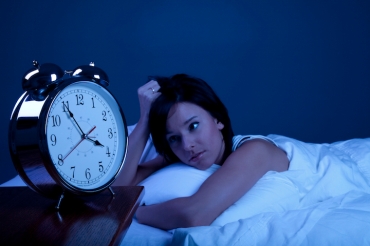
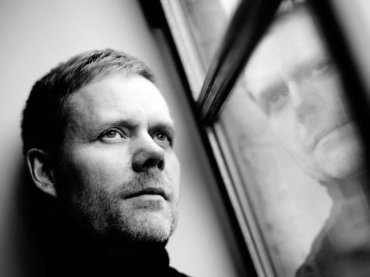
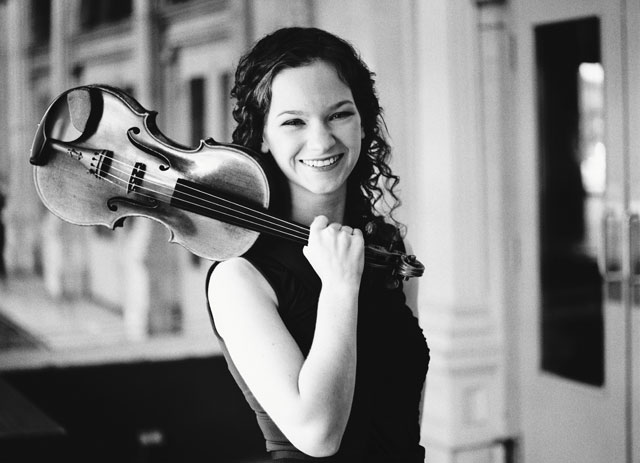



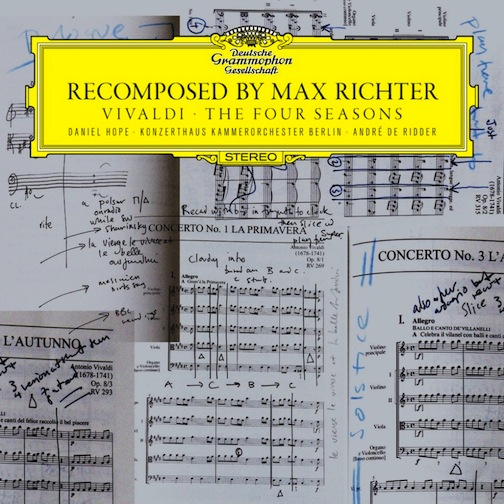
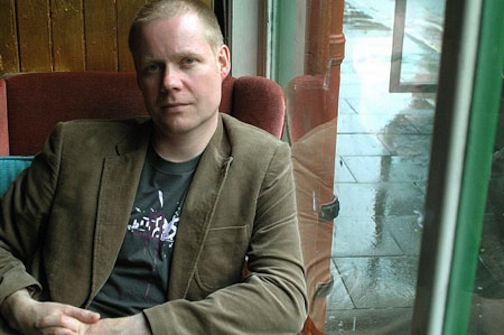
Classical music: What music is good to listen to every day for a year? And why? Clemency Burton-Hill discusses her book “Year of Wonder” on PBS’ “Newshour”
1 Comment
IF YOU LIKE A CERTAIN BLOG POST, PLEASE SPREAD THE WORD. FORWARD A LINK TO IT OR, SHARE or TAG IT (not just “Like” it) ON FACEBOOK. Performers can use the extra exposure to draw potential audience members to an event.
By Jacob Stockinger
What different pieces of classical music would be good to listen to every day of the year?
And what should you know about it?
Those are the simple but ambitious questions that the British writer Clemency Burton-Hill — who now works for the famed classical radio station WQXR in New York City — tackles in her book “Year of Wonder: Classical Music to Enjoy Day by Day” (below).
You can get a sample by going to the book section of Amazon.com and looking inside the book. Just click on the Introduction for an overview and then click on some specifics dates to see how it works.
But recently Burton-Hill (below) also appeared on “The NewsHour” on PBS to talk about the book, where she explained her purpose and method, especially her intent to help expand the audience for classical music.
Her remarks impressed The Ear who has ordered a copy of her book and hopes to learn from it and maybe even pass along some lessons from it.
All the genres, all the great composers (dead and living) and most of the great works are covered, as are many other neglected composers and unknown works. So the book can be considered a terrific resource for music education for both beginners and those who are experienced.
Her commentaries are also a model of brevity and engaging interest.
All in all, “Year of Wonder” seems a supremely practical, unpretentious and informative guide to daily listening, especially given how many of these works – often they are shorter sections of larger works — can be found for free on YouTube. (In fact, a playlist of music featured in the book is available on YouTube. Go to YouTube and type in “Year of Wonder Playlist” into the search engine, then look to the upper right for a list. A sample is at the bottom. Or use this direct link: https://www.youtube.com/watch?v=0wNTNEZYoHg&list=PLKPwLlyrD2y-1x-uKmUBzSOiAh83GhU7A
But you don’t have to take my word for it. Here is a link to the television interview:
https://www.pbs.org/newshour/show/embracing-classical-music-and-its-potential-for-sonic-salvation
The Ear hopes you find the interview both informative and useful.
Happy listening!
Share this:
Tags: #AlexanderScriabin, #AndrasSchiff, #AntonioVivaldi, #ArcangeloCorelli, #ArthurRubinstein, #BaroqueMusic, #BlogPost, #BlogPosting, #BookReview, #ChamberMusic, #ChopinEtudes, #ChoralMusic, #ClaraSchumann, #ClemencyBurton-Hill, #DmitriShostakovich, #EdvardGrieg, #FrancisPoulenc, #FranzSchubert, #FredericChopin, #GabrielFaure, #GiacomoPuccini, #GiuseppeVerdi, #GustavMahler, #JohannSebastianBach, #LeonardBernstein, #LivingComposer, #LucianoPavarotti, #LudwigVanBeethoven, #MauriceRavel, #MaxBruch, #MaxRichter, #MortenLauridsen, #MusicEducation, #NewMusic, #NewYorkCity, #OperaMusic, #PaulHindemith, #SamuelBarber, #SergeiProkofiev, #SteveReich, #StringQuartet, #TheNewsHour, #TomasoAlbinoni, #VocalMusic, #WolfgangAmadeusMozart, #WQXRradio, #YearofWonder, #YouTubevideo, Albinoni, amazon.com, ambitious, András Schiff, Arthur Rubinstein, Arts, audience, Bach, Barber, Baroque, Beethoven, beginners, blog, Book, book review, brevity, Chamber music, Chopin, choral music, Clara Schumann, Classical music, Clemency Burton-Hill, commentaries, commentary, composer, concerto, conductor, Corelli, daily, day, dead, different, Dmitri Shostakovich, Early music, engaging, enjoy, etude, expand, experienced, Faure, Franz Schubert, free, genre, George Frideric Handel, good, great, Grieg, guide, Hindemith, informative, intent, interest, interview, Jacob Stockinger, Johann Sebastian Bach, Johannes Brahms, Leonard Bernstein, lesson, like, link, listen, listening, living, Luciano Pavarotti, Ludwig van Beethoven, Madison, Mahler, Max Bruch, Max Richter, method, Morten Lauridsen, movement, Mozart, Music, Music education, neglected, New York City, opera, Orchestra, Paul Hindemith, PBS, performer, Piano, piece, playlist, Poulenc, practical, Prokofiev, Puccini, purpose, Radio, Ravel, remark, Requiem, Scriabin, section, share, short, simple, sing, Singing, Sonata, song, Steve Reich, String quartet, symphony, tag, Television, The Newshour, TV, United States, unknown, unpretentious, useful, Verdi, Viola, Violin, Vivaldi, vocal music, Wisconsin, Wolfgang Amadeus Mozart, wonder, word, works, WQXR, year, Year of Wonder, YouTube